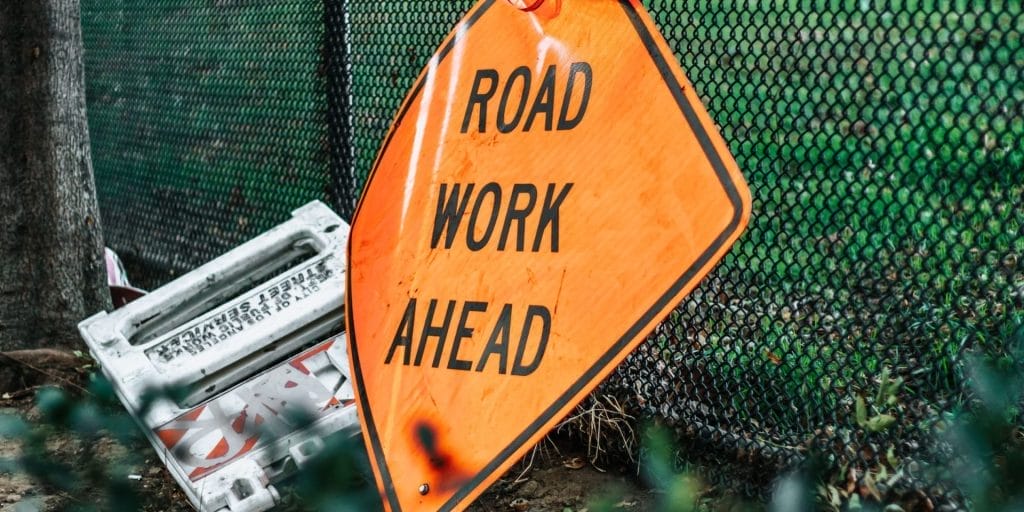
Driving through orange cones and flashing lights can be stressful, but exceeding the speed limit in a work zone is just plain dangerous. It puts construction workers, fellow drivers, and yourself at increased risk. In Washington, police are more than happy to give you a traffic ticket for speeding in a work zone. Speeding in these crucial areas comes with doubled fines, impacting your wallet and potentially your driving record and insurance premiums.
While receiving a ticket can be unsettling, understanding the consequences and your options is key. This article aims to provide clear, informative guidance on what to expect after a work zone speeding violation in Washington, empowering you to make informed decisions. We’ll discuss the increased fines, potential license impacts, and even explore options for contesting the ticket. Remember, knowledge is power, and knowing your rights can help you navigate this situation effectively.

Receiving a speeding ticket in a work zone can be confusing, especially with the increased fines and potential consequences. But fear not! Let’s break down the offense and its key aspects:
Washington traffic laws define a work zone as any area where construction, maintenance, or repairs are ongoing on a roadway. You’ll typically see orange cones, barrels, flashing lights, and road signs clearly marking the zone’s boundaries. Remember, even if workers aren’t physically present at the moment, the reduced speed limit still applies.
Unlike the open road, work zones demand extra caution. The posted speed limit within these zones is usually significantly lower than the regular road speed. This reduction, often to 30-40 Miles Per Hour, aims to protect the vulnerable workers ensuring our smooth commutes and maintain driver safety. Be mindful of these reduced limits; they’re not just suggestions, they’re crucial safety measures.
Unfortunately, exceeding the speed limit in a work zone doesn’t go unnoticed. Authorities employ various methods to ensure compliance:
Remember, regardless of the detection method, exceeding the work zone speed limit is a traffic violation with significant consequences. Understanding these key points is crucial to navigating this situation effectively. Stay tuned for the next section, where we’ll delve deeper into the potential implications of a work zone speeding ticket in Washington.
A work zone speeding ticket isn’t just a piece of paper, it’s a potential financial burden and a mark on your driving record. Let’s dissect the potential consequences:
Brace yourself, because in Washington, speeding in a work zone comes with a hefty price tag. Buckle up for doubled fines compared to regular speeding violations. Here’s a breakdown for clarity:
| Speeding Range (MPH) | Regular Speeding Fine | Work Zone Speeding Fine (Doubled) |
|---|---|---|
| 1-5 mph over | $105 – $125 | $210 – $250 |
| 6-10 mph over | $125 – $136 | $250 – $272 |
| 11-15 mph over | $156 – $166 | $312 – $332 |
| 16-20 mph over | $187 – $207 | $374 – $414 |
| 21-25 mph over | $218 – $259 | $436 – $518 |
| 26-30 mph over | $259 – $310 | $518 – $620 |
| 31-35 mph over | $310 – $361 | $620 – $722 |
| 36-40 mph over | $361 – $423 | $722 – $846 |
| 40+ mph over | $423+ | $846+ |
Remember, these are just base fines. Additional court costs and fees can apply, further impacting your wallet.
A work zone speeding ticket can send shockwaves through your insurance premiums. Insurance companies consider these violations seriously, as they indicate riskier driving behavior. Depending on your insurance provider, your rates could jump significantly, potentially impacting your budget for months or even years.
While less common, exceeding the speed limit by 20+ mph in a work zone can lead to demerit points on your driving record. These points can accumulate and potentially result in license suspension in extreme cases. Remember, a suspended license can severely impact your daily life and employment opportunities.
Understanding the consequences of a work zone speeding ticket is crucial. The financial strain, insurance hikes, and potential license suspension are serious deterrents against exceeding the speed limit in these crucial areas. Remember, slowing down in work zones isn’t just about avoiding a ticket; it’s about protecting yourself, construction workers, and fellow drivers. In the next section, we’ll explore options for potentially contesting a work zone speeding ticket in Washington.
Receiving a work zone speeding ticket can be frustrating, but remember, you have options. While I cannot provide legal advice, I can inform you about the possibility of contesting the ticket and potential defenses that might be applicable in Washington state.
Deciding to contest a ticket requires careful consideration. Consulting a traffic attorney specializing in Washington state is crucial. They can assess your specific situation, explain the legal process, and advise on the best course of action. Remember, legal fees might apply, so weigh the costs and potential benefits carefully.
While every case is unique, some potential defenses could apply to your work zone speeding ticket:
Remember: The burden of proof lies with you to challenge the ticket successfully. Having a skilled traffic attorney familiar with Washington traffic laws and court procedures can significantly increase your chances of a favorable outcome.

While legal advice is essential, remember you’re not alone in navigating this situation. Consider these resources:
Contesting a work zone speeding ticket is a complex decision. While this section provides an overview of potential options, remember, consulting a qualified traffic ticket attorney in Washington state is essential for personalized legal advice and representation. They can help you navigate the legal system, explore your options, and make informed decisions regarding your case.

While the legal and financial consequences of a work zone speeding ticket are significant, they pale in comparison to the human cost of exceeding the speed limit in these crucial areas. Remember, work zones aren’t just orange cones and flashing lights; they’re active construction sites where people are working hard to improve our roads and infrastructure. Every driver has a responsibility to prioritize safety in these zones.
Imagine a construction worker just inches away from your speeding vehicle, or another driver swerving to avoid debris at high speeds. Every time you exceed the speed limit in a work zone, you gamble with the lives of construction workers, fellow drivers, and yourself. A moment of impatience can have devastating consequences, leaving families shattered and communities grieving.
Statistics tell a sobering story: in 2021 alone, over 800 work zone fatalities occurred nationwide. Every one of those numbers represents a life lost, a family forever changed. Let’s not add to these tragic statistics. Remember, slowing down in a work zone isn’t just about avoiding a ticket; it’s about respecting human life and prioritizing safety for everyone involved.
Here are some actionable tips to help you navigate work zones safely and responsibly:
Remember: Every driver has a role to play in ensuring the safety of everyone in a work zone. By practicing defensive driving and prioritizing safety over speed, we can create safer roads for everyone and prevent needless tragedies. Let’s all commit to making work zones safe zones, one responsible decision at a time.
While this article cannot provide legal advice, consulting a Washington traffic attorney is crucial. They can review your case and explore potential defenses like faulty equipment or mistaken identity.
Fines are doubled compared to regular speeding tickets, ranging from $210 to $846+ depending on your speed. Remember, additional court costs and insurance rate hikes can further impact your wallet.
Yes, but carefully consider the costs and potential benefits. Consulting a Washington traffic attorney is essential to understand your options and build a strong defense if applicable.
Beyond fines, you endanger yourself, construction workers, and other drivers. Every accident has human consequences, and even minor speeding can lead to devastating outcomes.
Minimize distractions, obey speed limits, pay attention to signage, increase following distance, anticipate the unexpected, and turn on your headlights. Remember, safety is always the top priority.
Navigating work zones requires both awareness and responsibility. While understanding the legal consequences of speeding violations is crucial, the human cost of such actions is far greater. Remember, every construction worker, driver, and yourself deserves a safe environment on the road.
This article aimed to empower you with knowledge: the increased fines, potential consequences, and even options for contesting a ticket (consult a Washington traffic attorney for legal advice). However, the most valuable takeaway is the importance of prioritizing safety.
By slowing down, minimizing distractions, and obeying signage, you become an active participant in creating safer work zones. Let’s commit to responsible driving habits, ensuring everyone reaches their destination safely. After all, the journey matters as much as the final stop.
Remember, knowledge is power, but responsible driving is the key to a safer tomorrow. Take the wheel with awareness, prioritize safety, and let’s all navigate work zones with respect and responsibility.
The information contained in this post is provided for general information purposes only and does not constitute legal advice as every case is unique. The information provided herein is simply our way of introducing you to Torrone Law. We make no representations or warranty as to the quality, accuracy or completeness of any information, materials, or links to outside websites or materials provided through this website. For specific legal questions you should contact us for a free consultation.